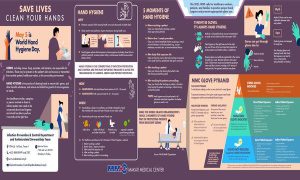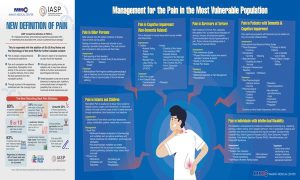Hormones are chemical messengers released by the Endocrine System to the bloodstream. They flow to the muscles, tissues, and organs to coordinate, control, and influence nearly all the functions and processes in the human body, from metabolism and growth to cognition and reproductive health, among others.
One of these hormones is testosterone. While it is generally relevant to men, this hormone is also present in women. But what does it do exactly? This article will tackle the importance of testosterone, the effects of having low levels of this hormone, and how to increase it.
What is Testosterone?
Testosterone is a hormone most often associated with sex drive and sperm production. However, testosterone plays a more significant role in the development of the male body in terms of muscle mass, bone density, hair growth, and cognitive ability.
The male body primarily produces testosterone in the testicles, with the hormone increasing about 30 times more during adolescence. The numbers naturally decline by around one percent (1%) as men age.
Meanwhile, testosterone comes in smaller amounts for women. The female body primarily produces it in the ovaries and adrenal glands.
Exploring options for a natural testosterone booster will help aging men maintain a healthy testosterone level. Low levels can produce various negative symptoms, such as low energy, weight gain, and erectile dysfunction.
8 Natural Testosterone Boosters to Keep You Healthy
1. Get your fit on
Regular exercise and building muscle mass trigger the body to produce testosterone, thus helping boost its levels. Strength training and high-intensity interval training (HIIT) are the best types of exercise for this.
2. Get some good shuteye
Sleep is as vital for health as diet and exercise. Most testosterone release in men happens during sleep, and lack of quality shuteye may interfere with its natural production. Getting the suggested 7–9 hours of sleep per night will help boost hormone levels and overall health.
3. Stress is not an accident
Research commonly highlights that continuous stress causes cortisol (hormone that helps the body manage stress) to rise. Cortisol and testosterone have an inverse relationship wherein as one increases, the other decreases.
Finding positive stress management methods will promote good physical and mental health while helping the body naturally increase testosterone levels.
4. Sorry, sweet tooth
High blood sugar levels can affect almost every aspect of the body’s function, including testosterone production.
A study reveals that diabetes and high blood sugar levels decrease testosterone production by interfering with the pituitary gland’s production of luteinizing hormones, which are crucial in regulating the function of the testes and ovaries, which respectively affect the sperm production of men and menstrual cycle of women.
5. Properprotein intake
Protein is one of the main building blocks of the body. Insufficient protein intake may decrease muscle mass and lower testosterone production. However, studies have also shown that a high-protein, low-carb diet negatively affects hormonal balance.
A balanced diet of testosterone-boosting food that provides healthy fat, protein, and carbs will help the body optimize hormone levels and foster long-term health.
6. Vitamin D-aily
Vitamin D is produced by the body when exposed to sunlight. This essential vitamin affects several bodily functions such as bone health and immunity.
However, people who receive less sunlight may be deficient in Vitamin D. Research has linked decreased testosterone levels with low Vitamin D levels in men. To improve health and testosterone count, taking Vitamin D supplements together with meals is best.
7. Zinc up
Zinc helps build protein and assists enzymes in breaking down food and nutrients, making it integral in regulating testosterone levels.
Studies suggest that low testosterone levels may be linked to zinc deficiency. Thus, eating food rich in this nutrient, such as crabs, oysters, red meat, and poultry, can be a great testosterone booster.
8. Drink moderately
Continuous and excessive alcohol consumption will cause adverse effects on the body as a whole, including lowering testosterone levels and impairing fertility. Alcohol adversely affects testosterone production by interfering with the hypothalamus, anterior pituitary gland, and the testes.
Quitting or lowering alcohol consumption and adopting a healthy lifestyle can help the body recover and reverse the hormonal and testicular damage done by substance abuse.
Conquer the Testos-throne
Women have a smaller testosterone count from the get-go, and men see testosterone levels taper off as they move through adulthood. So, maintaining a healthy level of testosterone is vital as people age.
Successfully managing this natural decline helps one live a long and healthy life. After all, hormones play a crucial role in preventing obesity, cardiovascular diseases, and even premature death.
Learn more about the latest hormonal imbalance treatment by getting in touch with Makati Medical Center. Be greeted by world-class facilities and outstanding healthcare services.








